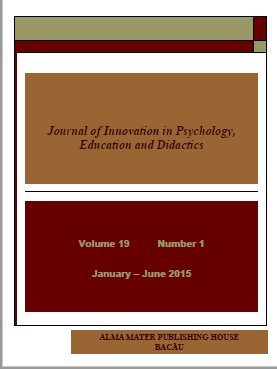DOES PHYSICAL MOVEMENT IMPACT THE QUALITY OF PUPILS’ LEARNING? - AN EMPIRICAL STUDY ON MOTION SEQUENCES’ EFFECTS ON COGNITIVE ABILITIES IN BIOLOGY CLASSES
DOES PHYSICAL MOVEMENT IMPACT THE QUALITY OF PUPILS’ LEARNING? - AN EMPIRICAL STUDY ON MOTION SEQUENCES’ EFFECTS ON COGNITIVE ABILITIES IN BIOLOGY CLASSES
Author(s): Claas WegnerSubject(s): Educational Psychology, Cognitive Psychology, Sociology of Education
Published by: Editura Alma Mater
Keywords: attention; Biology; classroom; concentration; physical movement;
Summary/Abstract: The study at hand deals with the question of whether the regular performance of motion sequences in school lessons has a positive influence on the students’ learning ability. Learning ability is largely affected by one’s attentiveness and ability to concentrate, which can be summarized as cognitive abilities. Based on the theoretical background proving positive effects on cognitive abilities due to physical activity, motion sequences were developed and tested in Biology lessons. In order to examine the effectiveness of this intervention, the d2 test of attention by Brickenkamp (2002) for the determination of attention and concentration performance was conducted in a test-retest-design and further accompanied by a self-developed questionnaire. Due to a disturbance variable, the hypothesis could not be validated. Still, the students’ personal feedback was uniformly positive, which goes along with results of other authors who detected various factors in teaching connected to physical activity that increase the students’ learning ability and the willingness to learn.
Journal: Journal of Innovation in Psychology, Education and Didactics
- Issue Year: 19/2015
- Issue No: 1
- Page Range: 15-36
- Page Count: 30
- Language: English

